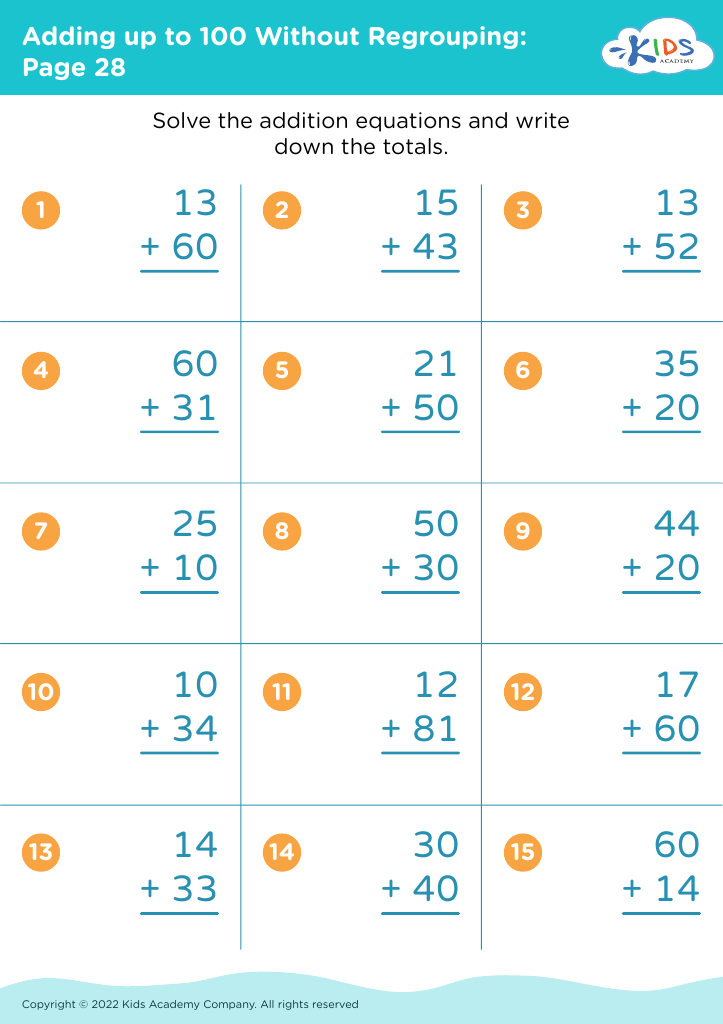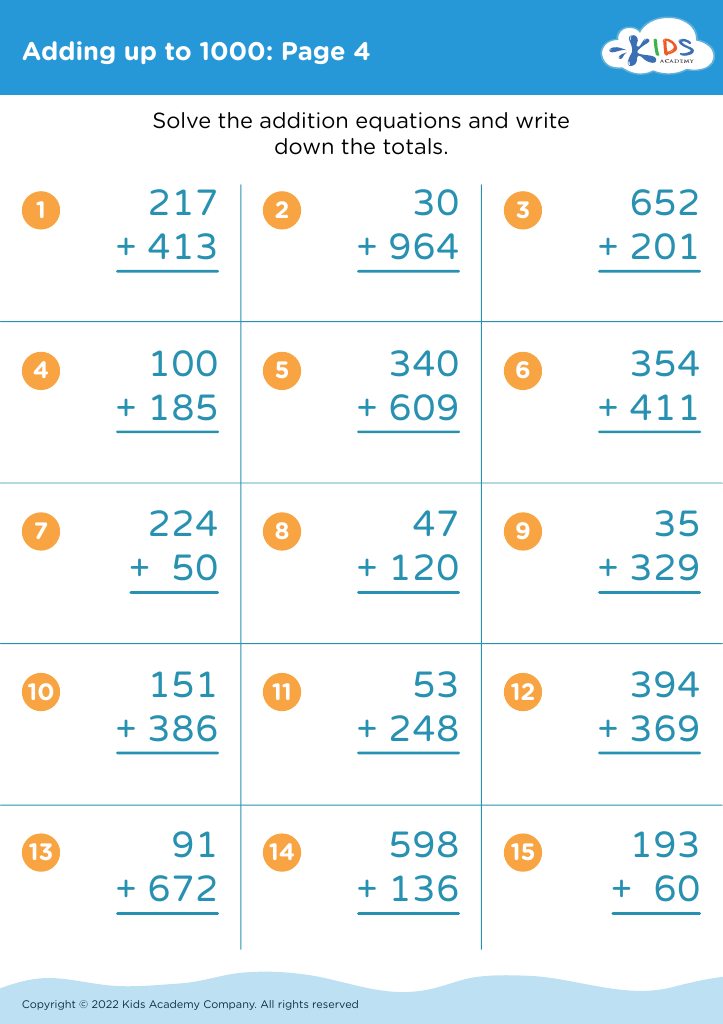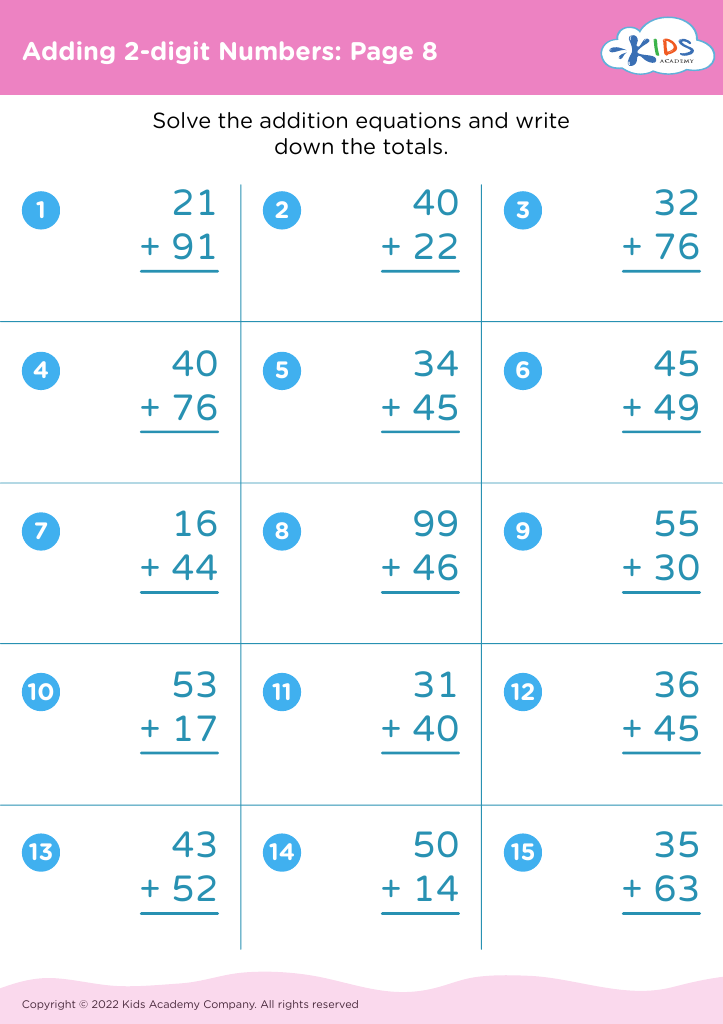Math problem-solving skills Addition Worksheets for Ages 3-7
3 filtered results
-
From - To
Discover our engaging "Math Problem-Solving Skills Addition Worksheets" designed specifically for children ages 3-7! These interactive worksheets foster essential math skills, helping young learners develop a strong foundation in addition through fun and playful activities. Each worksheet encourages critical thinking and problem-solving, making it easy for kids to grasp core concepts while building confidence. With colorful illustrations and diverse exercises, children will stay motivated as they explore math in a creative way. Perfect for parents and educators, our worksheets will enhance your child's math proficiency and prepare them for future learning challenges. Get started today and watch them thrive in math!
Parents and teachers should care about math problem-solving skills, particularly addition, for children ages 3 to 7, because these skills lay the foundation for future learning. Early math competence is strongly linked to overall academic success and critical thinking. Mastering addition at this young age enables children to develop logical reasoning, pattern recognition, and perseverance when faced with challenges.
Encouraging problem-solving in addition nurtures a child's confidence and promotes a positive attitude toward mathematics. Engaging students in hands-on activities, such as counting objects or using visual aids, not only makes learning enjoyable but also helps solidify conceptual understanding. Through problem-solving, children learn to approach tasks methodically, breaking them down into smaller, manageable steps—an essential life skill extending beyond math.
Moreover, building these skills early supports emotional development. Children learn to cope with frustration, celebrate achievements, and understand that making mistakes is part of the learning process. Equipping young learners with strong addition skills prepares them for more complex mathematical concepts and better equips them for their future academic journeys. Ultimately, by prioritizing math problem-solving skills, parents and teachers invest in a strong educational foundation that benefits children throughout their lives.




















